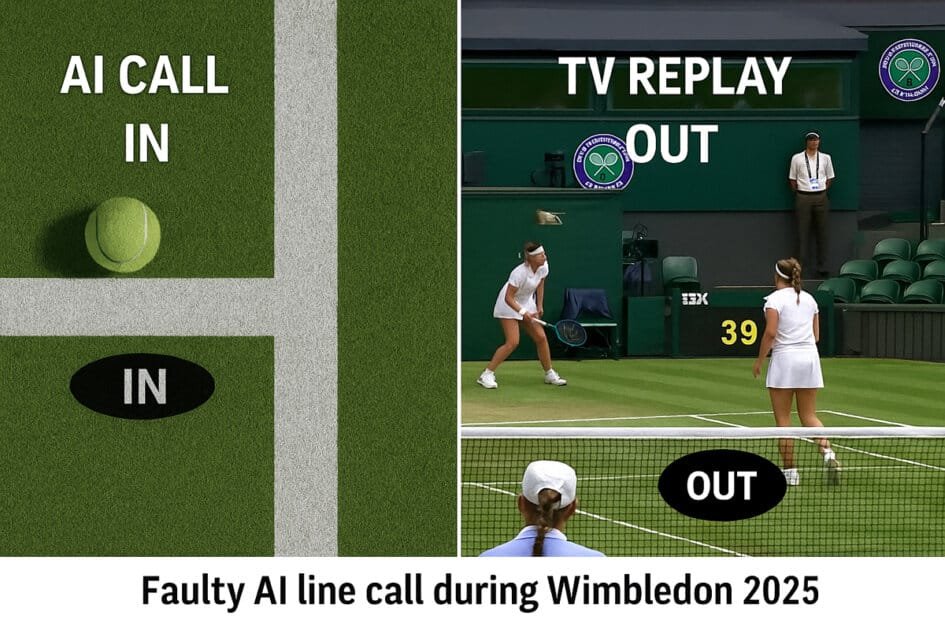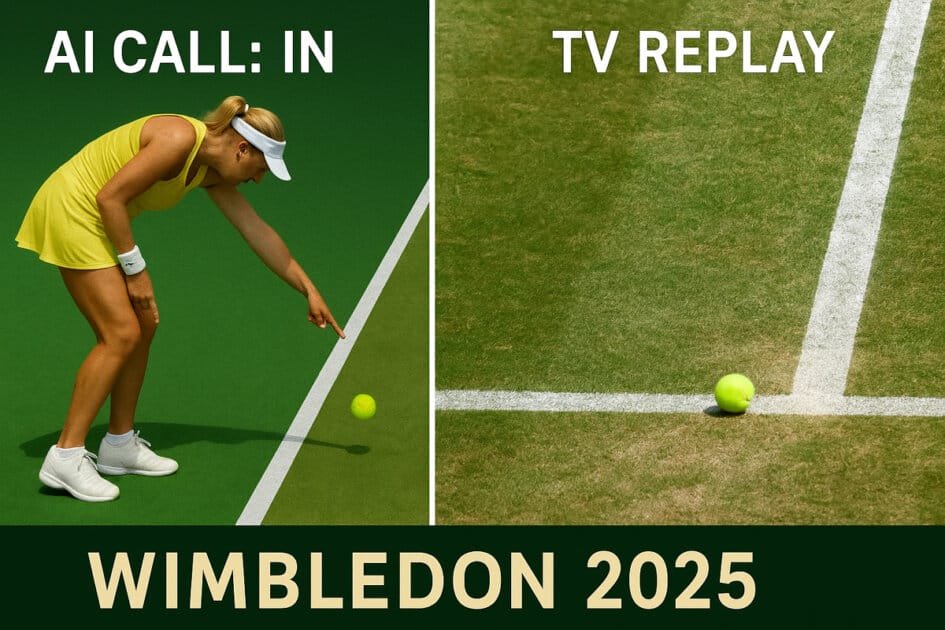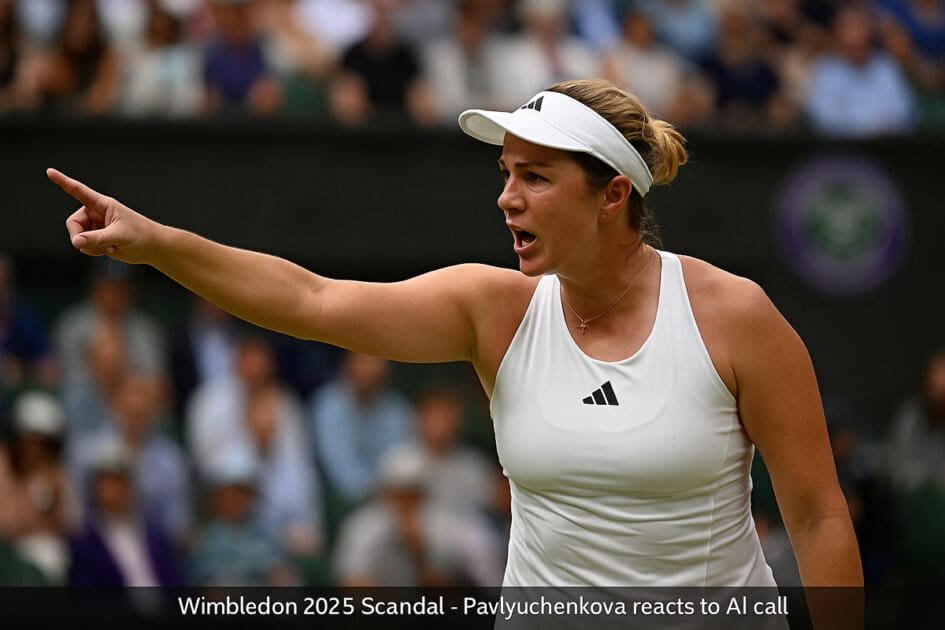The Wimbledon 2025 Scandal broke out after Russian tennis star Anastasia Pavlyuchenkova lost her Round of 16 match due to a controversial AI-powered line call. At a crucial moment in the second set, a visibly out serve was called “in” by Wimbledon’s automated line-calling system. With no challenge or review mechanism available, the point was replayed, leading to her defeat.
Anastasia Pavlyuchenkova: The Player Who Spoke Out
Known for her mental toughness and comeback story, Pavlyuchenkova didn’t shy away from calling out the system. In the post-match press conference, she stated:
“I was outplayed by a machine, not a player. It’s scary that even when a ball is visibly out, a line of code can overrule it.”
Her statement resonated with fans and players worldwide, sparking a global discussion on technology and fairness in sports.
Understanding AI Line-Calling Technology
Wimbledon implemented AI-powered line-calling technology in 2023, fully removing human line judges. The system, built by Hawk-Eye Innovations, uses synchronized cameras and audio sensors to determine if a ball is in or out.
While it claims 99.2% accuracy, the Wimbledon 2025 Scandal shows how:
- Players cannot challenge decisions.
- There is no human override.
- Replay visibility is limited to what AI shows.
This raises concerns about transparency, review rights, and fairness.

Match Highlights: When It All Went Wrong
Set: Second
Score: 4–4
Opponent: Camila Giorgi
Incident: Giorgi served what looked clearly out. AI ruled it in. Point replayed.
Result: Giorgi gained momentum and won the set, knocking Pavlyuchenkova out.
Replays shown on global sports channels like BBC and ESPN confirmed the ball was out, but no human review or intervention was possible.
External Source: BBC Tennis Coverage
Reactions: Players, Fans and Experts Unite
Prominent voices from the tennis world responded swiftly.
Martina Navratilova: “This sets a dangerous precedent. Technology must serve the game, not dominate it.”
Andy Roddick: “If there are no human reviews, we are blindly trusting machines with careers and legacies.”
Social media exploded with hashtags like #WimbledonScandal, #JusticeForAnastasia, and #AIvsAthlete. Reddit threads and Instagram reels replayed the moment to millions.

Wimbledon’s Official Apology and Backlash
Under intense media and public pressure, the All England Club issued an official apology stating:
“We regret the outcome that led to confusion and an unfortunate match result. Our commitment to innovation will now include review mechanisms.”
However, many fans and experts dismissed the apology as insufficient, demanding structural reforms and accountability.
Sports, Ethics, and the AI Question
The Wimbledon 2025 Scandal is not an isolated event. Similar controversies have emerged in:
- Football: VAR errors during key World Cup moments.
- Cricket: DRS misjudgments in LBW calls.
- Basketball: Shot-clock glitches in the NBA Finals.
As technology is integrated across sports, experts argue it must be accompanied by ethical frameworks, transparency, and human oversight.
Quote from sports ethicist Dr. Meena Kalra:
“The myth of perfection in technology has blinded us. Fairness requires review, consent, and trust—not just data.”
Public Sentiment: What Players and Fans Are Saying
Following the Wimbledon 2025 Scandal, players, fans, and experts across the globe raised serious concerns about the overdependence on technology in high-stakes sports.
Reactions gathered from platforms such as Twitter, Reddit, Instagram, and YouTube revealed strong themes:
- Technology is useful, but critical decisions should not be left to AI alone.
- Grand Slam tournaments like Wimbledon must allow players to challenge AI decisions, especially in decisive moments.
- A majority of expert commentators and former athletes advocate for a hybrid model, combining AI precision with human judgment and review safeguards.
These sentiments are being echoed widely across global media, including BBC Sport, ESPN Tennis, and The Guardian.
The Wimbledon 2025 Scandal has opened global eyes to the dangers of unchecked AI in sports. While technology brings precision, it also removes context, human judgment, and the emotional nuance of live sports.
This incident may be the wake-up call the industry needed. Players, organizers, and fans now demand a hybrid model—where technology supports the game, but doesn’t define it.
Anastasia Pavlyuchenkova may have lost the match, but her voice could shape the future of tennis.
Table of Contents
- 📰 AI in Sports: How Artificial Intelligence is Revolutionizing Games, Training & Viewing
- 🎙️ The New Era of Youth in India: Seeking Dreams Amidst Technology, Environment, Health, and Political Power



